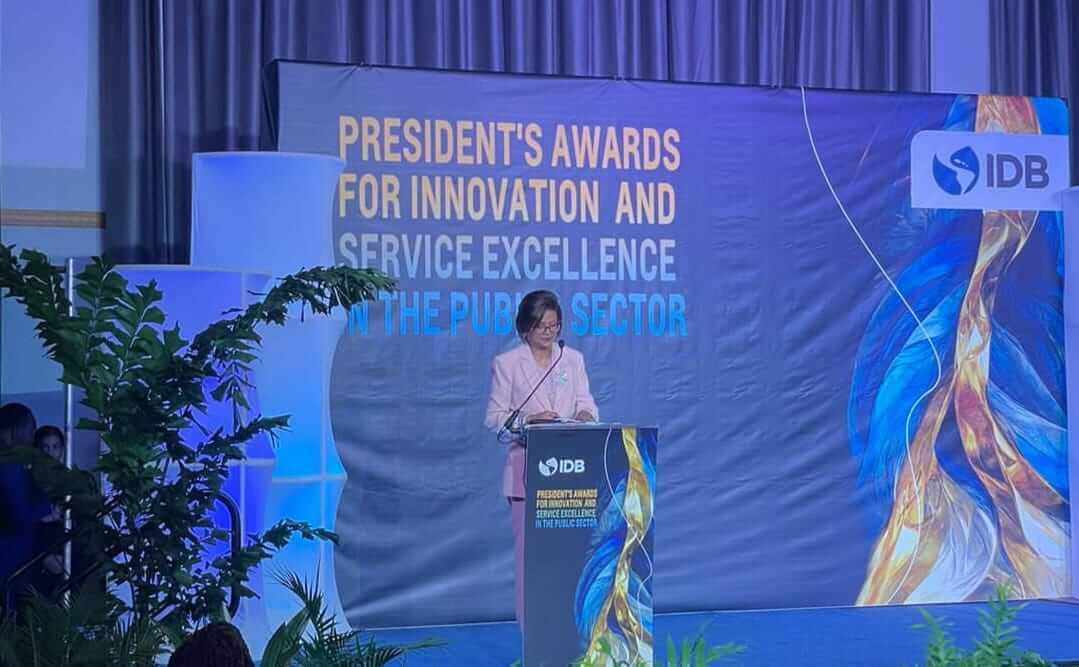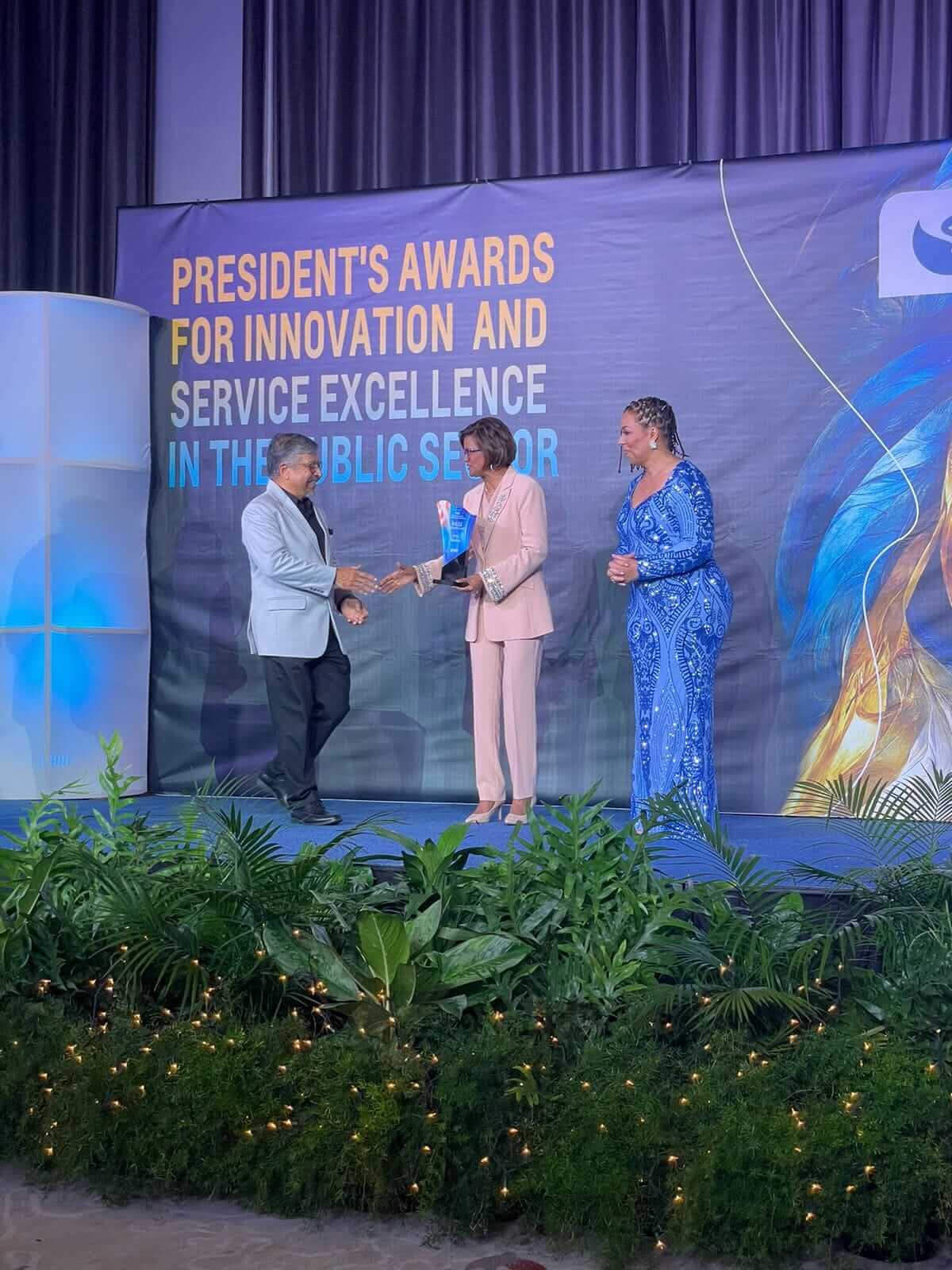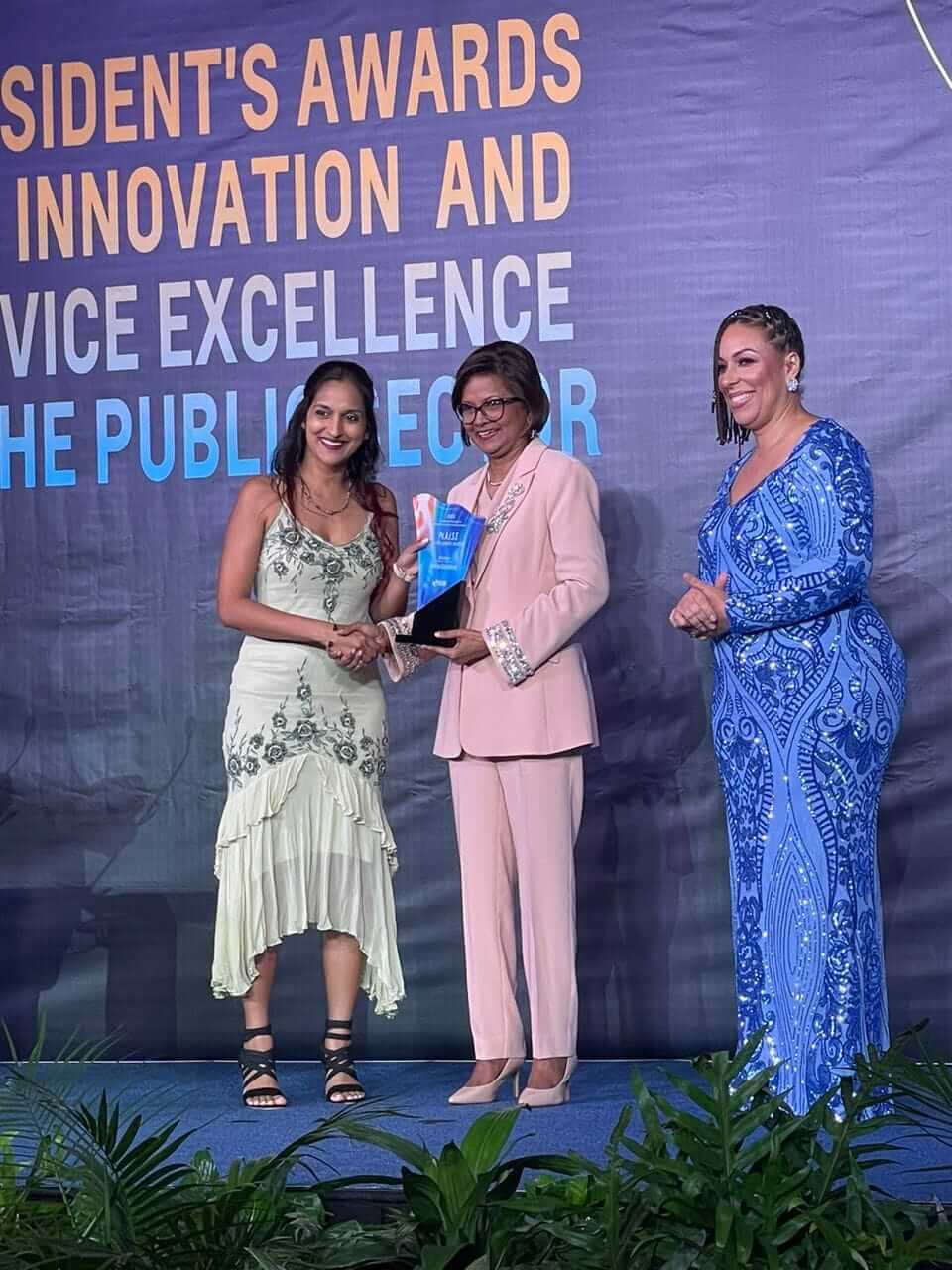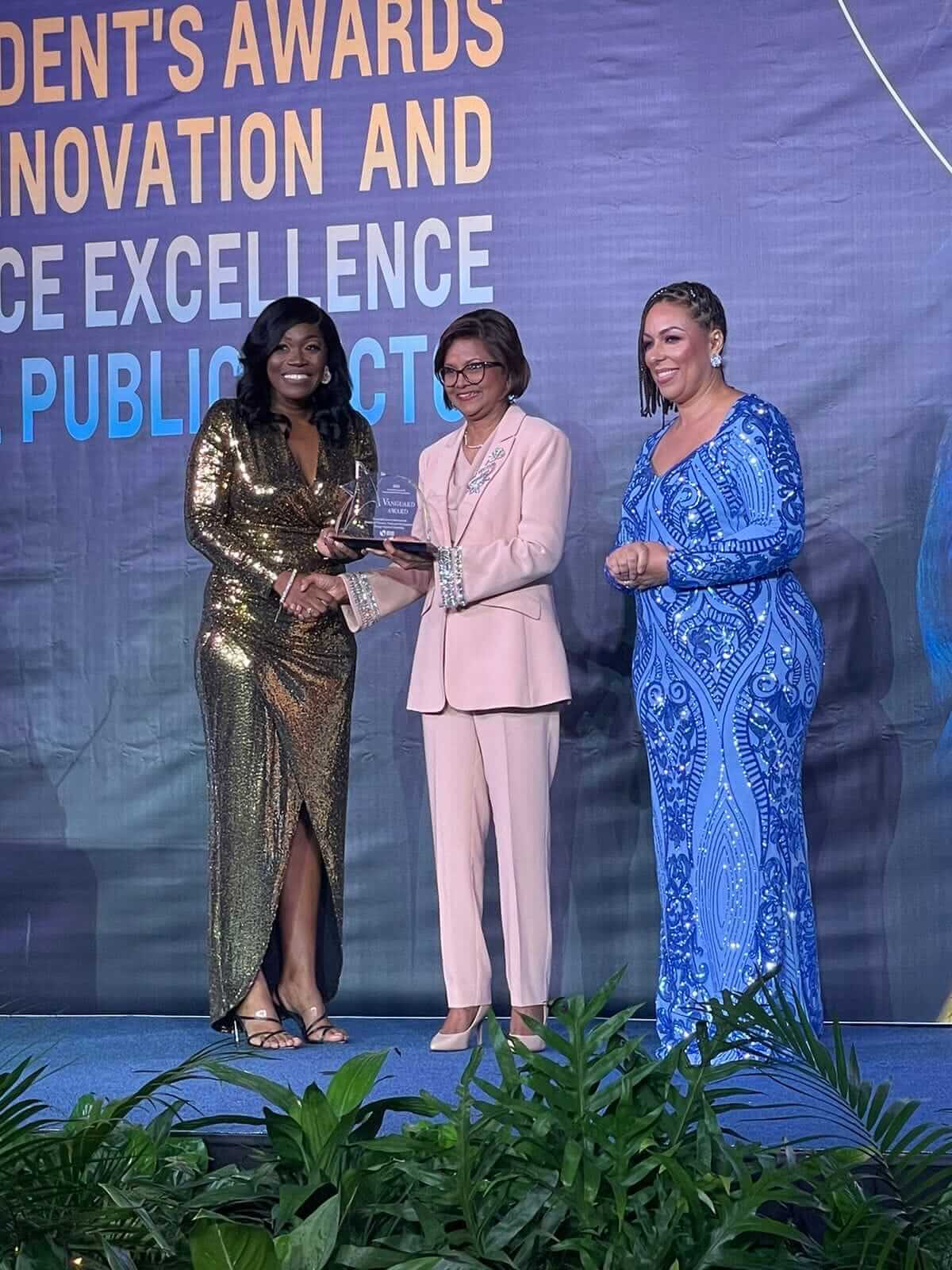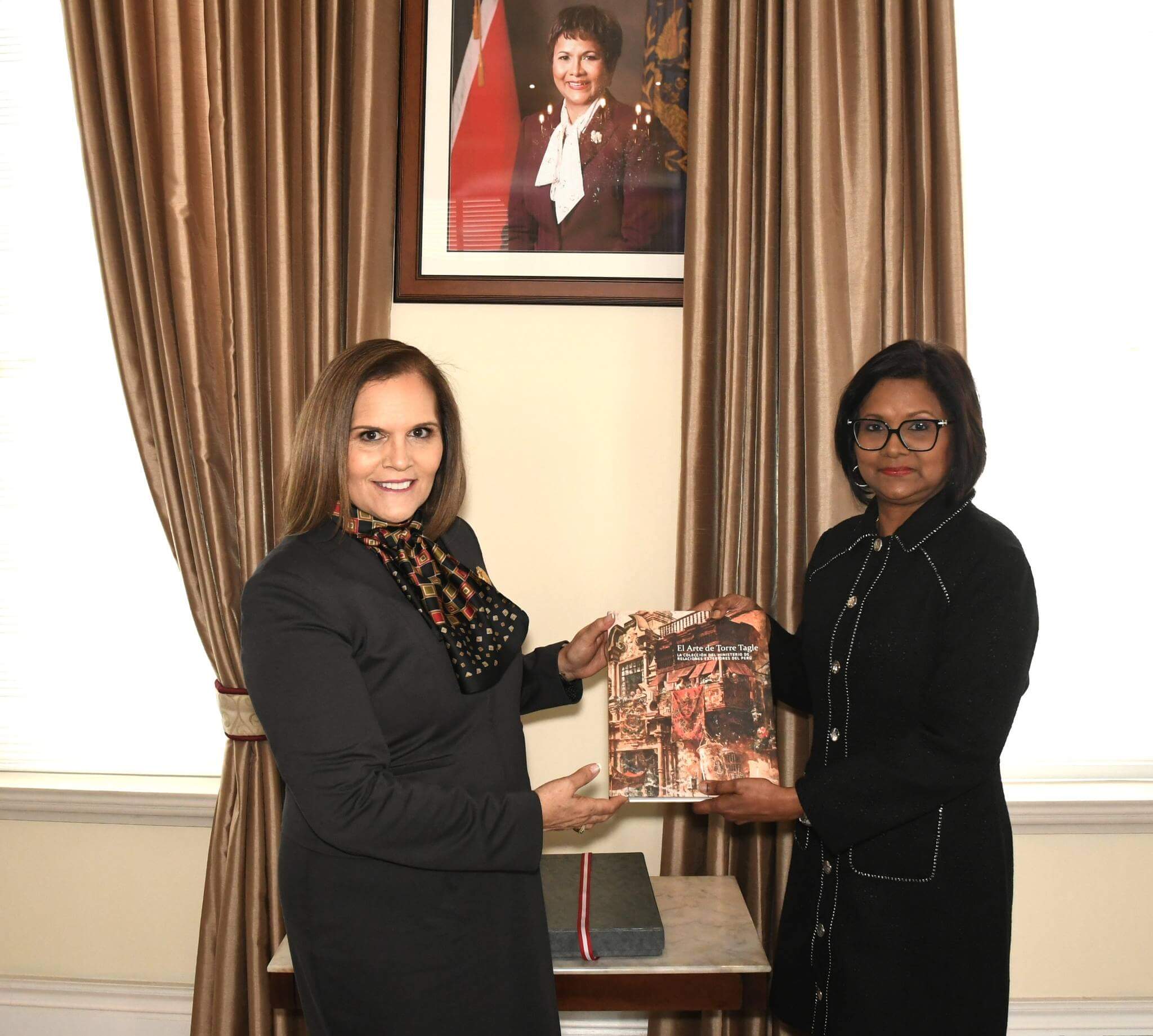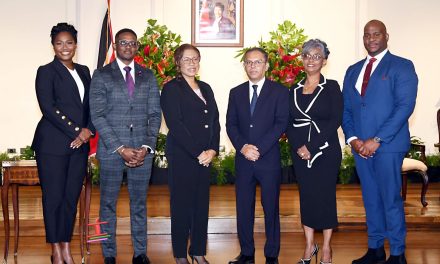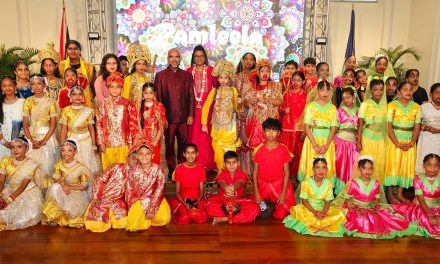Good evening.
Permit me to say, right at the start, how grateful I am to be part of this evening’s celebration of excellence and innovation in the public sector. Having, over the course of the last two decades, held various positions in the public sector, I know personally of the talent, capacity and potential that exist within our public institutions. I have often, over the last 20 years, tapped into the human resource potential of our public sector. And I have worked alongside some of the most dedicated, enterprising and inventive public officers one could hope for. I have, of course, also encountered from time to time, the not-so-helpful side of the public service – but, fortunately, those experiences have been vastly outnumbered by the good ones that I have had.
I do not believe that burying one’s head in the sand is ever a viable response to problems. Doing that does not make the problem invisible – it only suffocates the person who is burying his head. And so, I think that we have to face the reality that, for an unacceptably large number of citizens, those who serve in the public sector do not always create the kind of end-user experience that is expected or desirable. I’ll give you a short, but true story, that I recently witnessed, fist hand, about two citizens and the unfortunate experience they had at the hands of the public sector.
The two persons the subject of this story, are friends of mine. They had travelled all the way from London to Trinidad. One of the matters they had hoped to treat with, while here, was to make a payment and conduct a certain, fairly standard, transaction at the office of a public utility. And so, on the day in question, they organised ground transportation and arrived early to conduct their business. No sooner had they sat down at the counter than they were met with the news that the utility’s computer-system wasn’t working that day, and that their business could not be transacted until the computer-system was back online at some indeterminate date in the future. You can imagine how incensed they were. It took me some time to calm them down, and to bring them to an appreciation of two salient facts. The first fact was that, especially in today’s world, in which so much that we do on a daily basis is dependent on technology, glitches like that can and do happen, with extremely disruptive consequences. The second fact was that, by and large, their interactions with that public utility had, in the past, been relatively positive. But, as the old saying goes – it takes only one bad apple to spoil the bunch; and, as I have said, an unacceptably large number of citizens, like my two friends, have had experiences like my friends had, far more often than citizens expect or deserve.
One of the important things that this evening’s celebration does, therefore, is to remind us that, despite experiences like the one I have described, there is much in the public sector of which we can and should be extremely proud. Each time an award is given out this evening, like the steady beat of a metronome, let us be reminded of the value and the potential of those who labour tirelessly in the public sector. It is that value and that potential that we celebrate this evening. And that is among the reasons that I have said that I am grateful to be part of this evening’s celebration of excellence and innovation in the public sector. I am truly grateful that public sector employees are being recognised and celebrated for their efforts to champion progress and innovation in our nation’s public institutions.
The awards by which we recognise and we celebrate our public sector workers this evening, came about as a result of the 2018 decision of the Inter-American Development Bank (IDB) to ‘recognise transformational initiatives undertaken by public sector institutions across the country’ and to allow citizens to participate in the process via the People’s Choice category. I salute and thank the IDB for the IDB’s continued support of this country’s development goals and objectives. I also wish to thank my predecessor, former President Paula-Mae Weekes, for extending the patronage of the Office of the President to this worthy cause – a relationship that I am more than happy to continue. Without this forum, it is likely that, just like that public utility’s consistently good efforts – from which my friends, in the end, agreed they had generally benefitted – the efforts of this evening’s finalists would also have gone unnoticed and unsung. These efforts, more likely than not, would have been drowned out by a cacophony of complaints and criticisms, many of which are not always fair.
Although we gather this evening to recognise and celebrate this year’s awardees, I think it is also important to recognise and celebrate all of this year’s participants in the competition. This year, the participants’ projects were so exceptionally good, that an entirely new category of award – the “Vanguard Award” – had to be created just to recognise the sheer ingenuity and creativity of the projects. I want to recognise all of this year’s participants, for rising above the scepticism and, I imagine, the self-doubt, and for submitting entries that have reinvigorated our belief in the value and the potential of the public sector. Having been part of, and on the receiving end of public service transformation initiatives over the years, I know all too well how demanding and difficult effecting change can be when facing systemic delays and frustrations, and vested interests. None of this year’s participants was in the least bit deterred by those hurdles. Instead, all of them devised practical and effective ways of circumventing and surmounting these challenges as they sought to do two things: first, fulfil their organisations’ mandates; and second, ensure quality service-delivery to the population. Rather than sitting back and throwing their proverbial hands up in the air, this year’s participants identified challenges in their organisational landscape and committed their time, competencies and efforts to transform vision into reality. This year’s participants are representative of the many public servants who not only desire progress and change within their spheres of operation, but who are also prepared to do what is necessary to make progress and change happen.
I should also like to take this opportunity to thank, for their commitment of time and effort, the judges who shortlisted the entries and chose the winners in each category. I have no doubt that this year’s judges were as impressed as I was by the calibre of the submissions. In the innovation stream, for example, there was an emphasis on harnessing technology to transform or increase access to existing services and to encourage others to come up with innovative solutions to common problems. In the service excellence category, there was an emphasis on reducing inconvenience to customers and a strong desire to learn from the feedback mechanisms implemented. And, as I have said, for the first time this year, there has been created an entirely new stream – the “Vanguard Award” – in which the emphasis of the winner was on financial literacy.
Among the things that strike me about the participants in this year’s competition, is the fact that they all clearly understand the need for public services to be reliable, efficient and relevant to the changing times. This aspiration is encapsulated in Goal 16 of the United Nations Sustainable Development Agenda. Goal 16 is to promote peaceful and inclusive societies for sustainable development, provide access to justice for all and build effective, accountable and inclusive institutions at all levels. Effective, accountable and inclusive institutions, are essential for sustainable development. Whether in the realm of health, education, finance, defence, waste removal, or transportation – providing effective and quality public services to fulfil society’s needs is a critical and inalienable part of our national development and progress. All of us who provide a public service therefore need to ensure that our service-delivery systems are modern, efficient, functional, and capable of withstanding and weathering any storm that comes our way—be they economic woes, climate change or global health crises.
And this leads me to something else that has struck me about this year’s submissions – and that is, that it is clear, from the project descriptions given by the entrants, that invaluable lessons have been learned in the public sector from the impact of the Covid-19 Pandemic. The need to ensure continuity of public services during a time of social distancing, stay at home measures, and a global health emergency, pushed institutions to rethink their strategies and come up with new ways of doing business. I suppose it can be said that the Pandemic was a rude wake-up call about the need to modernise and embrace the digitalisation of service delivery now, and not at some indeterminate date in the future. I was delighted to read of the measures taken by this year’s finalists to minimise the disruption of their services and to ensure that if, God forbid, we ever experience a phenomenon like Covid-19 again, we stand a much better chance of ensuring the continued delivery of essential services to citizens.
I believe that it is important to ensure that the momentum established during COVID-19 is not lost, but rather, is consolidated and built upon, through continuous improvements, fresh ideas and ongoing innovation. Our public institutions will certainly be all the better for it. The World Public Sector Report 2023 puts it this way, “capitalising on successful institutional innovations undertaken during the pandemic could… make public institutions more effective and resilient to shocks, more participatory and inclusive, more forward-looking and able to steer societal change, and makes them more transparent and accountable.” There can be no doubt that this is the direction in which our public institutions need to go. Bolstering the public sector in this way, will only redound to our nation’s benefit.
I would also offer that another important benefit of bolstering the capacity of the public sector in this way, is that this goes a long way towards building and sustaining public trust in our institutions. According to one author, “Excellence in the design and delivery of services promotes confidence and trust in government, and contributes to achieving public policy goals and outcomes.”
I firmly believe that competitions like this one go a long way towards revitalising the public sector, and in debunking the negative stereotypes and opinions that are sometimes visited upon the public service in Trinidad and Tobago. Public servants are often all tarred with the same negative brush, despite the fact that within the service there are to be found some of the brightest, most able, hardest-working and conscientious individuals in the country . When I was growing up, working for the public service was a badge of honour and a privilege. I believe that it still is. And I believe that interventions like this competition will help to make it even more so.
I have no doubt that the projects undertaken by this evening’s finalists have the capacity to improve prevailing public perceptions, and offer to the public a proper appreciation for the tremendous amount of work that goes on behind the scenes in public-sector service-delivery. I am confident that when citizens get a glimpse into the opportunities for creativity and invention in the public sector that this competition showcases, they will be more inclined to modify, not only their opinions, but also their inclination to work in the public sector and contribute, even more directly, to this country’s development agenda.
On this score, I would like to use this opportunity to encourage citizens, especially our young people, to pursue a life of public service. There is no doubt that public service can be gruelling, demanding, time consuming, and often expose us to unfair and sometimes very public criticisms. But, despite all of these challenges, I believe and I join in the words commonly attributed to US President Woodrow Wilson, that “There is no higher calling than human service” and that “to work for the common good is the greatest creed.”
I also want to challenge those at the top echelons of management in the public service to follow the lead of this competition and seek out ways of creating environments conducive to innovation and service excellence. I encourage you to reward out-of-the-box thinking and support initiatives that promise to revamp outdated or inefficient processes. In urge you to ensure that our stewards of public policy are well trained, compensated and nurtured. And I exhort you to strain every sinew to ensure that no stone is left unturned to create and to support an eco-system of innovation and service excellence.
My fellow public officers – some of you may be tired, jaded and even disillusioned. I ask you to remind yourself of your integral role in national development and progress. You are the stewards of public policy, from clerk to permanent secretary, and it is my hope that you will continue to serve, and do so willingly and wholeheartedly. Often, words like excellence and innovation are treated as if they are reserved to describe only the private sector. You have proven that they apply to the public sector as well. In fact, given the sheer reach of the public sector in terms of the wide range of services that the sector provides to the country – it is the public sector who can be the largest innovators, creators, and drivers of transformation in service delivery and, in consequence, of the quality of life in Trinidad and Tobago.
I should like to close as I began – in gratitude. I am grateful for tonight’s award ceremony; for all the institutions that participated in this year’s competition; for the support of the IDB and for the efforts of the judges. I am also, of course, very grateful to all of you, for listening to me this evening.
I wish all of you and the people of Trinidad and Tobago a Merry Christmas and a bright and prosperous New Year.
Thank you.
